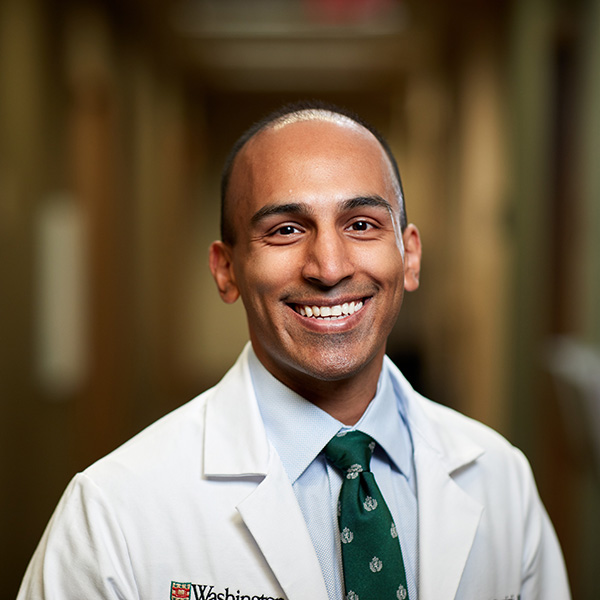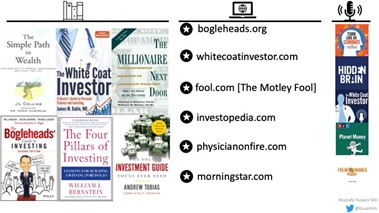Part 1: Introduction to Personal Finance: Lessons From Curious George

"As my mind begins to spread its wings, there's no stopping curiosity" - Jack Johnson
The life lessons from Curious George range far and wide. Jack Johnson's hit single Upside Down from the 2006 self-titled movie exemplifies the concept that once you start learning about something, your curiosity can take you quite far. Throughout George's various adventures through everyday life, he makes the mundane and ordinary fun. His curiosity teaches us to try new things and use our imagination to see the potential results of various options in front of us. In this first part of a series on personal finance, we will use lessons from Curious George and apply them to how fellows in training (FIT) and early career (EC) cardiologists can set themselves up for financial independence and success. Our goal is to encourage further exploration and should not – by any means – be considered financial advice.
What is the "why" in your life?
The first question that we need to ask is determining the "why" in your life. Why should you care about your personal finances? Our medical training included almost no financial education. Many of us believe that we have neither the expertise nor the time to handle personal finances. As such, it is tempting to turn over the keys to a stock picker or money manager. As your personal Man With the Yellow Hat, we encourage you ask yourself why you should care about your personal finances and then encourage your mind to spread its wings. Medicine is not the only field moving away from paternalism.
During training, we quickly jumped from one goal to the next. Acceptance into medical school. Studying for Step 1. Research projects. Fellowship interviews. Now that you are a cardiologist, when was the last time you sat down and thought about your goals? As we branch out and try new things, your next step should be establishing your financial goal. Is your goal to ensure that you are financially secure? Is it to create generational wealth? Does your goal incorporate having some adventure and risk taking? Is your goal to have a luxurious lifestyle? If you are unclear what your financial goal is, there are numerous resources that can aid you in getting started (Figure 1). The key is to remember that money as a goal is meaningless; it is only the lubricant that allows you to achieve your life goals. As you consume this information, you should start to build a basic framework regarding the difference between wealth and income while also thinking about your risk tolerance. We will have a deeper dive into goal setting in a future blog.
Would you rather have a high income with no wealth, or would you rather use your income to generate wealth?
After years of earning a training stipend, the relatively higher income as an EC can lead to the feeling of immense wealth and desire to spend it lavishly. As high-income professionals, it is imperative to understand the difference between income and wealth. Income, quite basically, is the amount of money we earn each year (think salary). Wealth - be it negative or positive - is what we accumulate (think net worth). For those of us with high income but large amounts of debt, we still have more work to do. Here's an acronym I learned recently: HENRY (High-Earner, Not Rich Yet).
In his book The Millionaire Next Door, Thomas J. Stanley describes wealth as "a result of a lifestyle of hard work, perseverance, planning, and most of all, self-discipline." As cardiologists we have the income to do whatever we want, however, we are not rich yet. We still need to make sure our financial ducks – retirement savings, disability insurance, life insurance, kids' college funds – are in a row. As high-income individuals that live in a low interest environment, it is easy to use leverage to purchase a lavish lifestyle for what appears to be reasonable monthly payments. Early in our career, however, money that is spent is money that is not growing to achieve our goals. This is not to say you can't have any fun after years of sacrifice; rather, simple budgeting can allow for both luxuries and eventual wealth and stability.
Let's talk about risk
An introduction to personal finance would not be complete without a discussion of risk. As all medical decision making involves some level of risk, so do financial investments, securities and insurance. Bill Bernstein, MD – retired neurologist & financial theorist – popularized the concept of shallow risk and deep risk. Shallow risk is the short-term volatility that is seen in the stock market; it is expected to occur, has a loss of real capital, but that loss will eventually recover. Deep risk is the irretrievable loss of capital over the long term (i.e., multiple decades). Shallow risk and deep risk are not analogous to good risk and bad risk, respectively. Shallow risk can be devasting if personal psychology wins over sound financial planning.
How much volatility are you willing to accept before you feel the pain and panic-sell at the bottom of a market crash? As novice investors, we often tend to overestimate our own risk tolerance and let our emotions get the better of any sound financial strategy. As FITs/EC with longer investing horizons, we will undoubtedly experience shallow risk. If we can stomach the short-term losses, then we will be able to ride the long-term gains. It is imperative, however, to not put ourselves in deep risk by buying high and selling low as this will result in an irretrievable loss of capital.
Next to come
As we embark on this journey together and start to solidify your personal goals, we will create a foundation for sustained financial independence and success. Over the next year, we will discuss actionable steps you can use to create a financial plan, review the basics of some common investment vehicles, and have more in-depth discussions regarding various strategies. If there are more concepts/topics you would like us to discuss, please reach out to us by e-mail (husainim@wustl.edu) or twitter (@husainim). Until next time, "there's no stopping curiosity".
Homework
- Pick up one of the following books and explore a few of the websites or podcasts.
- Invest some uninterrupted time in yourself - sit down and think about your financial goals and what you want out of this next phase in your life.
- Calculate your current income and REQUIRED spending (taxes, rent, insurance, daycare, etc). This will be essential for the next few articles.
